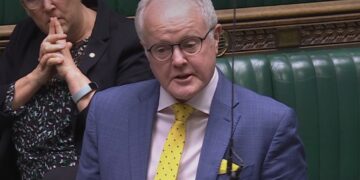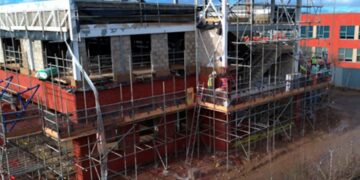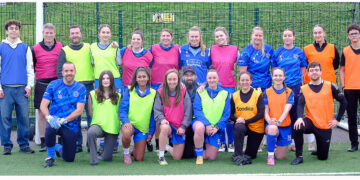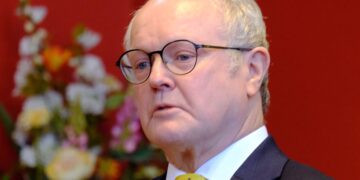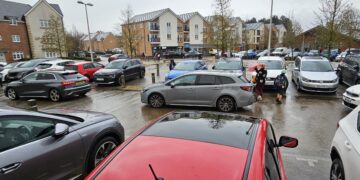ONE of Wokingham’s four MPs has hit out at data that shows there has been a rise in child poverty across his constituency.
Matt Rodda, who became Reading East MP in last year’s General Election, said that the Government should be doing more to tackle the issue.
Campaign group End Child Poverty has just released an updated picture of child poverty rates across the country. It says that child poverty is the highest in large cities, particularly in London, Birmingham and Manchester. Wokingham Borough has the sixth lowest level of child poverty in the UK – but more than one in 10 of children meet the criteria established by the group.
In neighbouring Reading, where the majority of Mr Rodda’s constituency lies, the figures show that 21% of children are living in poverty, up from 19.6%, as was recorded in the last survey held in 2015.
And in some constituencies are now showing more than half of the children living there are growing up in poverty.
Sam Royston, Chair of the End Child Poverty Coalition, said: “It is scandalous that a child born in some parts of the UK now has a greater chance of growing up in poverty, than being in a family above the breadline.
“There can be little doubt that the Government’s policy of maintaining the benefits freeze despite rising prices is a major contributor to the emerging child poverty crisis.”
Mr Rodda argued that while families experience poverty for many reasons, its root cause is not having enough money to copy with the circumstances in which they are living.
And he joined calls from the End Child Poverty coalition to urge Chancellor Philip Hammond to end the freeze on children’s benefits.
Mr Rodda said: “It’s deeply wrong and unfair that there are large numbers of children living in poverty in Reading, Woodley and Earley.
“These children are suffering through no fault of their own and I believe the Government should be taking action now to tackle this serious problem.
“In particular I am calling for Ministers to pause and fix Universal Credit, under which working families struggling on low incomes face a delay of up to five weeks to be paid their benefits.
The figures are published, along with an interactive map, at www.endchildpoverty.org.uk/poverty-in-your-area-2018/
| Percentage of children in poverty, July-Sept 2017 | BEFORE HOUSING COSTS | AFTER HOUSING COSTS | ||
|---|---|---|---|---|
| Local Authority and wards* | Number of children | % | Number of children | % |
| Wokingham | 2,259 | 6.54% | 3,718 | 10.76% |
| Arborfield | 45 | 5.43% | 73 | 8.95% |
| Barkham | 26 | 2.86% | 43 | 4.79% |
| Bulmershe and Whitegates | 270 | 15.20% | 426 | 24.00% |
| Charvil | 49 | 6.45% | 80 | 10.64% |
| Coronation | 64 | 5.17% | 107 | 8.57% |
| Emmbrook | 88 | 5.10% | 146 | 8.46% |
| Evendons | 97 | 4.78% | 161 | 7.92% |
| Finchampstead North | 51 | 4.01% | 85 | 6.69% |
| Finchampstead South | 89 | 7.64% | 145 | 12.49% |
| Hawkedon | 135 | 6.04% | 222 | 9.98% |
| Hillside | 53 | 3.26% | 88 | 5.44% |
| Hurst | 17 | 2.45% | 29 | 4.05% |
| Loddon | 154 | 7.28% | 252 | 11.91% |
| Maiden Erlegh | 104 | 5.04% | 173 | 8.39% |
| Norreys | 192 | 10.13% | 311 | 16.42% |
| Remenham, Wargrave and Ruscombe | 61 | 5.66% | 100 | 9.38% |
| Shinfield North | 82 | 9.24% | 133 | 15.00% |
| Shinfield South | 132 | 8.04% | 216 | 13.15% |
| Sonning | 33 | 5.35% | 56 | 8.89% |
| South Lake | 62 | 6.30% | 103 | 10.38% |
| Swallowfield | 67 | 10.89% | 108 | 17.59% |
| Twyford | 57 | 4.59% | 95 | 7.65% |
| Wescott | 45 | 4.10% | 74 | 6.79% |
| Winnersh | 174 | 7.61% | 284 | 12.45% |
| Wokingham Without | 80 | 4.48% | 133 | 7.44% |



